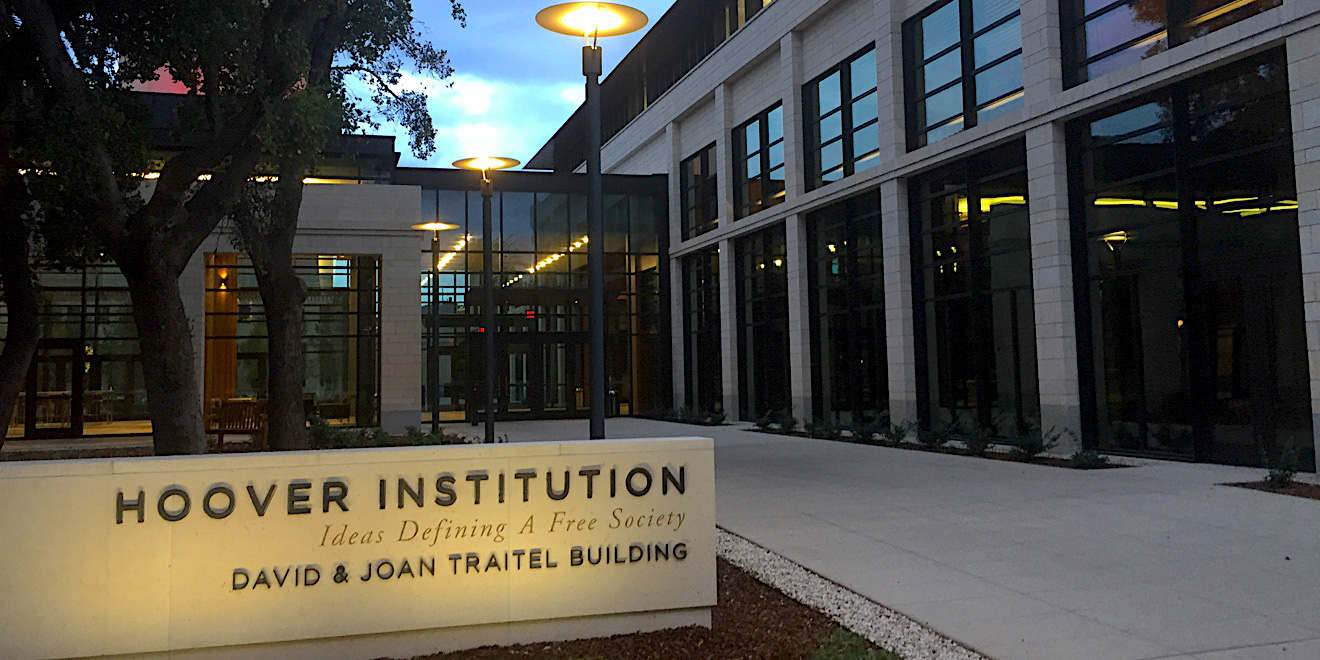Some historians at Stanford and at peer institutions pushed back against Hoover Institution director and former U.S. Secretary of State Condoleezza Rice’s critical comment that history departments are asking “narrower” questions than they have in the past.
Several historians dismissed the characterization that their questions are narrow. Others said narrow questions are necessary to have focused research that produces an answer.
Hoover spokesperson Eryn Tillman wrote in a statement to The Daily that Rice “reads history broadly,” and that Rice’s comments were not a criticism of historians in the department or their work, rather a view of what is happening in the study of history.
“History is being practiced in the academy in a way that’s not really very inspiring,” Rice said in an Oct. 5 Q&A posted on the Hoover Institution’s website. “History departments ask much narrower questions than in years past.”
Her remarks followed a question about how Hoover can “establish the intellectual groundwork” to combat a rising China. “Let’s start by really bringing the best young historians of China and India,” Rice said in the same response.
The dispute comes amid broad scrutiny of Hoover and its affiliates over the coronavirus. In September, about 100 Stanford faculty members wrote a letter criticizing Hoover senior fellow and Trump advisor Scott Atlas’ views on the pandemic. (Atlas threatened a defamation suit against the signatories.) Later that month, over 100 Stanford faculty urged the Faculty Senate to reconsider the Hoover Institution’s relationship with the University in a separate letter.
University spokesperson E.J. Miranda wrote in a statement to The Daily about Rice’s comments that “expression of the widest range of viewpoints is encouraged, free from institutional orthodoxy and from internal or external coercion.”
Chinese history professor Tom Mullaney took to Twitter to voice his discontent with Rice’s comments, writing, “I put no stock in @CondoleezzaRice assessment of me or my fellow China historians @Stanford or beyond.”
Mullaney uploaded a five minute video to Youtube titled “Condoleezza Rice wants to ‘Make History Great Again’” on Oct. 7, which has since accumulated over 2,000 views. In the video, Mullaney dismisses the idea that Stanford historians are asking narrow questions.
“For myself, I only work on extremely narrow topics including how the Chinese state deals with ethnic minorities in its country and the history of Chinese information technology,” Mullaney said sarcastically.
Rice has reached out to Mullaney and the history department’s chair to discuss her comments, according to Tillman. “They have had a civil and productive exchange,” Tillman added.
Mullaney also placed Rice’s comments in the context of past statements made by Hoover fellows regarding history. In 2016, senior Hoover fellow Niall Ferguson cited the existence of history courses like HISTORY 41Q: “Madwomen: The History of Women and Mental Illness in the U.S.” as evidence for “why history is an academic discipline in decline.”
Nuclear security, anthropology and history professor Gabrielle Hecht also took issue with Rice’s statement. In a Twitter thread posted on Oct. 6, Hecht identified inaccuracies in the second part of Rice’s answer to the question regarding Hoover and China, in which Rice identified Gabriel Almond and Seymour Martin Lipset as Stanford historians who explored “big questions. “
Hecht said that neither Almond, a former chair of the Stanford political science department, nor Lipset, a former Stanford sociologist and political scientist, were historians.
“I wonder whether Dr. Rice is adequately informed about current historical scholarship,” Hecht said. “It’s true that we’ve seen a decline of grand political narratives: Most historians no longer seek to write history solely from the perspective of political elites. This doesn’t mean historians don’t tackle big questions.”
According to Trinity University assistant history professor Gina Anne Tam Ph.D. ’16, who completed her Ph.D. in modern Chinese history, Rice’s comments “come from a presumption that the only interesting questions we can ask are big and — if I may — tired questions that are often framed by the nation-state, vague notions of ‘civilizations’ and power struggles among them.”
Tam believes that while Rice is correct in asserting that most historians today don’t write books in this vein, the reason is that “good history starts with a question we can actually answer.”
Books on topics like the Chinese revolution in Tibet and the role of overseas Chinese in the global history of medicine, Tam says, address “questions that we actually can provide answers to, and also inform these bigger questions.”
Tillman wrote that Rice believes it is important to get students to take the study of history more seriously.
Rice “believes we have to encourage and get students excited about the study of the humanities and history,” Tillman wrote. “She wants Hoover’s renowned Library and Archives to play a bigger role in helping students get inspired by the lessons of the past that are at their fingertips right here at Stanford.”
Tam said she especially found Rice’s comments disappointing because “her comments matter, and they echo what a lot of people say to dismiss a lot of the work that we do.”
“Our public would do better to understand why histories that focus on global exchange or histories that privilege the voices of underrepresented groups really matter,” Tam said. “Historians are the ones — with our emphasis on contingency, empathy and change over time — who have the toolkit to uncover these kinds of narratives that don’t fit neatly into familiar models, and ultimately, would make our policy better.”
This article has been corrected to reflect that Gina Anne Tam is an assistant history professor at Trinity University, not Trinity College. The Daily regrets this error.
Contact Evan Cheng at evcheng ‘at’ stanford.edu.
